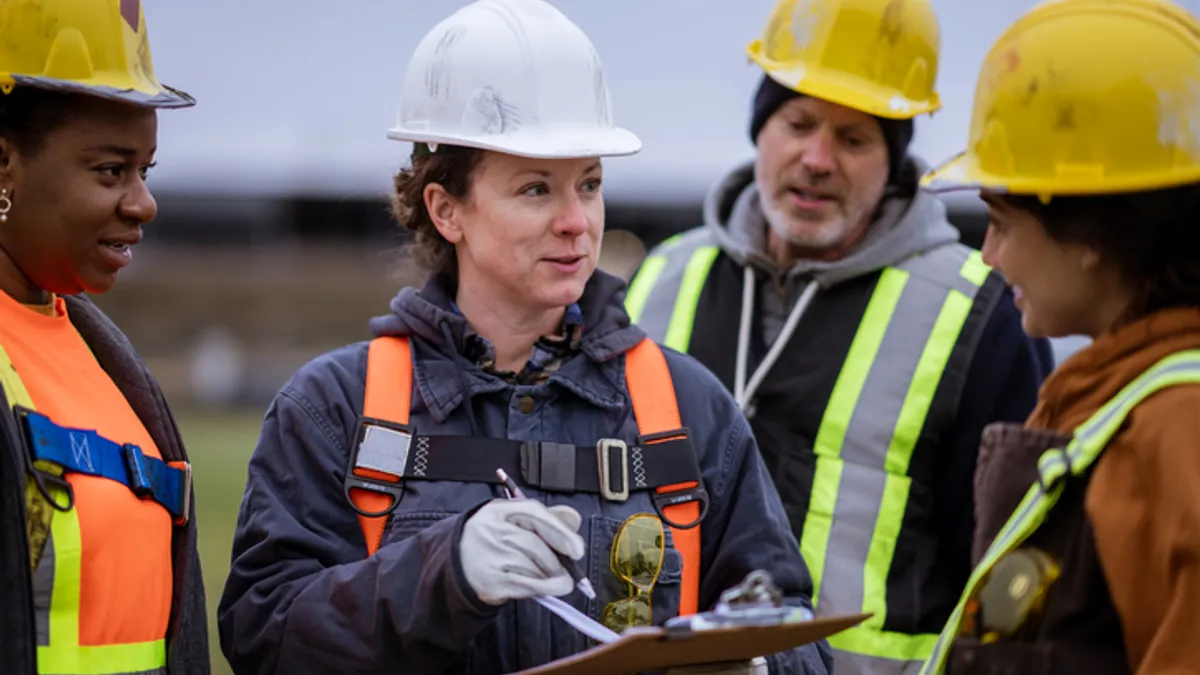Dive Brief:
- A Connecticut state bill, if passed, would require in-house Connecticut DOT (CTDOT) engineers to perform inspections on state bridge and highway construction projects, and a state employees' union is dragging FIGG Bridge Engineers Inc. into its fight to turn the legislation into law, according to the Hartford Courant.
- CSEA/SEIU Local 2001, which has been arguing that CTDOT employees should be performing all inspection work on the state's 300 structurally deficient bridges instead of "low bid" and "no bid" consultants and has thrown support behind the proposed legislation, has been distributing a flyer featuring a photo of the fatal March 2018 Florida International University bridge collapse. The wording on the flyer references FIGG's role in the FIU project and the ensuing National Transportation Safety Board (NTSB) investigation and seems to question the CTDOT's judgment in awarding FIGG a contract to perform construction engineering and inspection (CEI) services for the two-year $46 million Arrigoni Bridge rehabilitation project.
- A DOT spokesman characterized the union's efforts as "fearmongering" and said that FIGG's role was not as a designer as it was on the FIU project. FIGG's scope of work includes quality assurance and verification that the methods and materials used on the project are in compliance with CTDOT specifications. The same FIGG team that will work on the Arrigoni project, the DOT said, has performed well on other bridge projects in the state.
Dive Insight:
FIGG did not respond to Construction Dive's request for comments.
In written testimony submitted to the state legislature's transportation committee, CDOT Commissioner Joseph Giulietti said the measure was unnecessary because, under both existing state and federal law, CTDOT transportation engineers already have the responsibility of signing off on agency projects.
The cost of using consultants rather than in-house CTDOT staff was also at issue in testimony to the committee. One analysis found that the CTDOT could have saved a total of $324.7 million across 2016, 2017 and 2018 by foregoing outside consultants and using state employees instead for CEI services. Also, according to written testimony from CSEA/SEIU Local 2001 P-4 Council President Travis Woodward, in addition to increasing public safety, the state could save $100 million a year by moving CEI services in house. He wrote that the state of Tennessee had saved $54 million since 2012 by reducing their use of outside consultants.
This is just the latest challenge for FIGG after an NTSB ruling that the company's design was the probable cause for the FIU pedestrian bridge collapse, an assertion FIGG vehemently denies. The bridge engineering company said that its own outside engineers determined that a field error made by the construction team caused the accident.
Since the NTSB's ruling, The Texas DOT has examined FIGG's role in two Texas bridge projects — the $1 billion Ship Channel Bridge in Houston and the $800 million Harbor Bridge in Corpus Christi, Texas.
An independent engineering consultant that the TxDOT hired late last year found 21 areas of "significant concern" in the design of the Ship Channel Bridge, but FIGG said such differences in opinion are not unusual when it comes to design and that the company would collaborate with other members of the design team to address any issues.
The TxDOT demanded that the joint venture of Flatiron and Dragados replace FIGG on the Harbor Bridge project.












